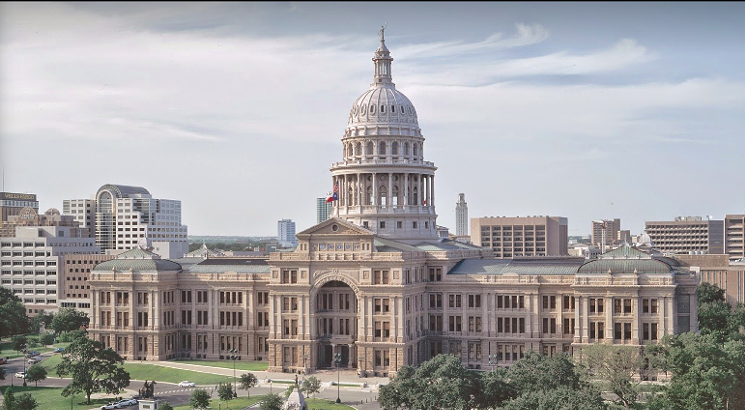
Wikicommons

Audio By Carbonatix
A bill filed in the Texas Senate aims to add a new option for what happens to our bodies after we die.
Authored by Dallas Democrat Sen. Nathan Johnson and co-authored by Sen. Morgan Lamantia, Democrat from the Gulf Coast, Senate Bill 105’s goal is to add alkaline hydrolysis, also known as water cremation, to the state’s definition of what cremation can entail.
If you weren’t aware of such a thing as water cremation, you’re not alone. It’s not yet a common method. A 2022 Smithsonian Magazine report notes that in 2021 fewer than 2,000 water cremations were performed, less than a 10th of a percent of the total cremations in the U.S. that year.
So why is this bill necessary? According to Johnson, water cremation’s low profile and newer technology, relative to that of flame cremation, is probably the reason.
“It’s not entirely clear from the law whether it’s legal,” Johnson told the Observer over the phone. “But that lack of clarity is enough to sway funeral services providers from making an investment in the devices you need to perform this service.”
It’s not just water that goes into this alternative method. The chemical solution used consists of 5% sodium hydroxide or potassium hydroxide and 95% water. The body is placed in a stainless steel pressurized chamber that’s filled with the solution, which is then heated above 300 degrees.
According to Green Cremation Texas’ website, “The combination of the solution, heat and pressure causes a sped-up natural decomposition process. Everything but the bone decomposes. The bones are then ground into ash for the family.” The sterile liquid containing natural byproducts of decomposition is disposed of through the standard sewer or city wastewater system without harming the water supply.
More than 20 states have made alkaline hydrolysis legal for human funeral services. It’s worth noting here that water cremation is legal in Texas for pet remains. Medical schools often use the method to dispose of cadavers that are no longer of use. On top of that, Johnson says that this lesser-known method is also better for the environment than its more commonly known alternatives.
“To me, it’s about the individual conscience, the individual choice.” – Sen. Nathan Johnson
“Water cremation is vastly more environmentally sound than traditional burial or flame cremation,” he says. “On the energy side alone, the process of alkaline hydrolysis consumes approximately only 10% of the energy that flame cremation consumes. And there are fewer materials needed than traditional burial, where there’s millions of feet of wood used to make caskets.”
Johnson notes that water cremation is also cheaper than traditional burial. But even with environmental and financial benefits attached to the legalization of water cremation, there are opponents to the measure. The Texas Catholic Conference of Bishops testified in opposition to the bill in Austin this week during the senate’s Business and Commerce Committee hearing.
Preferring burial to any form of cremation, some Catholic leaders have expressed a specific distaste for the water variety due to a perceived lack of dignity in the effluent being sent down a sewer drain. In 2018, Dallas County Commissioners decided the method was “distasteful,” according to a Dallas Morning News report.
Johnson appreciates the benefits that clarifying water cremation’s place in the funeral services marketplace could bring, but the affordability or even the eco-friendly nature of it isn’t what appeals to him the most.
“To me, it’s about the individual conscience, the individual choice,” he said. “How can you best honor your religion, how can you best honor your traditions, how can you best honor your beliefs about the earth? I think the law should allow us the maximum freedom in those respects. I like to make sure the government doesn’t get in the way of things and, in this case, it is.”